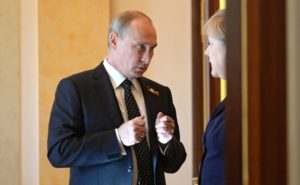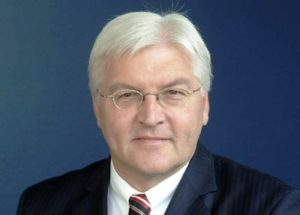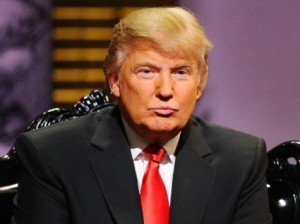
EDITOR'S CHOICE | 25.12.2016
Gilbert Doctorow is the European Coordinator of The American Committee for East West Accord Ltd. His latest book, Does Russia Have a Future? was published in August 20, 2015
As German Chancellor Angela Merkel’s government is staggered by security lapses that may have permitted a fatal terrorist attack on a Christmas market in Berlin, the question many inside and outside Germany are asking is how this may affect the chances of her CDU party and its junior affiliate in Bavaria (CSU) to dominate the 2017 parliamentary elections and form the next government.
Her personal standing has weathered a number of crises in the past year, and polls before the terror attack gave her about a 50 percent approval rating. Moreover, within the CDU itself, she received more than 89 percent backing at the party convention in Essen a couple of weeks ago to remain at the helm and fight for another term as Chancellor next October.
Russian President Vladimir Putin with German Chancellor Angela Merkel on May 10, 2015, at the Kremlin. (Photo from Russian government)
That being said, the party has not done as well as Merkel. It lost several regional elections this past fall and the leader of her Bavarian affiliate, Herr Seehofer, was nipping at her heels over her continued hardline economic sanctions against Russia relating to the Ukraine crisis and more particularly over her lenient admission of around one million Mideast immigrants.
One of the widely noted features of Angela Merkel’s ten-years-plus in office is that she has sidelined all possible competitors, not only within her party but even in the leading opposition party, the Socialists (SPD) with whom she has shared a coalition government.
Just what this means in practice I saw firsthand last Friday when I was in Berlin for an event organized and attended by SPD party officials and supporters. The event was a press briefing at the Bundestag announcing the European launch of Détente Now! (or “Neue Entspannungspolitik Jetzt!” in German) after its U.S. debut with an op-ed in The Nation. The launch on two continents was meant to draw attention to the overarching objective of establishing a new peaceful Atlanticism to replace the neocon-dominated Atlantic Alliance that has developed over the past two decades in a malignant way, bringing us into a New Cold War and, in the estimation of some of us, to the brink of a hot war.
Judged as a “press briefing,” the meeting was a failure. Out of the 20 or so participants, there were just three journalists. One came from Deutsche Welle – not to prepare a report or do interviews but to ask insulting questions, such as why Russian President Vladimir Putin’s signature was not on the appeal to reinstate the policy of rapprochement with Moscow that German Chancellor Willy Brandt had championed nearly a half century ago.
Explaining the History of Détente
The significance of the event lay elsewhere as several organizers of Détente Now! met with representatives of German church groups, pacifist movements, one former Greens politician, and American friends of the initiative (myself and one other). But the single most important politician in the room was SPD Bundestag member Ute Finckh-Kraemer, a longtime supporter of peaceful coexistence who keeps the memory of détente’s great thinker Egon Bahr shining bright.
Ute Finckh-Krämer is on the Bundestag’s Foreign Affairs Committee and is Deputy Chairperson of the Subcommittee on Arms Control and Disarmament. In that context, it was illuminating to hear her response to a somewhat hostile question: namely how can you consider implementing détente with Russia when Putin is doing so many nasty things like flying military aircraft around the Baltic Sea with their transponders turned off?
Finckh-Kraemer reminded the questioner of just how Entspannungspolitik originally came about, not at a time of easy relations with Moscow but amid dangerous tensions. Détente toward Moscow was first implemented by Willie Brandt in 1969 in response to the Soviet invasion of Czechoslovakia the preceding August to oust a reformist regime. Instead of imposing sanctions on the Soviet Union, Brandt sent his assistant, Egon Bahr, to Moscow for extensive talks with the Kremlin with plans to draw closer to them and seek to influence their behavior from within.
Finckh-Kraemer argued that what is urgently needed today is precisely what Brandt undertook in 1969, a policy of de-escalating tensions without preconditions. With her comments, Finckh-Kraemer demonstrated that within the SPD there are very able defenders of détente who understand with great clarity why it’s needed.
The problem is that the party as a whole is enthralled to discipline of the coalition government with the CDU and to its own internal hierarchy, where the most senior voices of the party, Frank-Walter Steinmeier and Sigmar Gabriel, lack charisma and seem to lack as well the courage to openly challenge the “group think” coming from Washington and passing down through Merkel to the whole German government.
The apologists for Steinmeier explained that he, like Merkel, helped frame the still-uncompleted Minsk-2 accords regarding the Ukraine crisis in 2015 out of fear that the then-imminent defeat of Ukrainian forces in the Debaltsevo Cauldron might cause the United States to step up its military support for Kiev, risking an all-out proxy war with Russia that could spread the conflagration into Central Europe.
Since then, it would appear that Steinmeier and Merkel have remained fearful of breaking with Washington over the anti-Russian sanctions or over Syria lest the Obama administration do something reckless in its final weeks in office.
That is a different approach from what is happening in France where Republican candidate Francois Fillon – emboldened by Donald Trump’s U.S. victory – made improved relations with Russia a key element in his successful primary campaign in November.
Can Germany Shift?
In Germany, the question is: will the timorous SPD and the pigheaded CDU continue to hold to these New Cold War policies during the fall 2017 federal elections? The answer seems to be yes, unless the issue is seriously addressed now and a constituency arises favoring a more constructive approach toward Russia.
Within the SPD, the two main contenders for party leadership as candidates for Chancellor are Sigmar Gabriel, who is presently serving as Deputy Chancellor for Economics, and Martin Schulz, the outgoing President of the European Parliament. Of the two, Schulz is arguably the more “charismatic” if that is taken to mean outwardly self-confident, even strident. But Schulz brings with him the baggage of his association with the increasingly unpopular European Union bureaucracy.
During his years in the European Union’s institutions, Schulz was a defender of what is called “democracy promotion,” the West’s funding and training of activists who then challenge – through media propaganda and street protests – governments that are regarded as insufficiently liberal. In that context, Schulz has been arrogant and censorious towards Russia, very much in line with the policy that developed in Berlin over the same period.
Gabriel is less involved in foreign policy and lacks his own message regarding future relations with Russia.
Meanwhile, from my correspondence with leading experts on Russia within the SPD’s main think tank, the Friedrich Ebert Stiftung, I must conclude that people with a distinctly neocon or “liberal interventionist” viewpoint continue to rule the roost there. One does not get very far in the think tank by calling for a change of direction on Russia without being labeled “Putin Versteher,” a pejorative that roughly translates to “Putin sympathizer” and is fatal to any political career.
The same holds true for the Foundation’s foreign relations magazine, Internationale Politik und Gesellschaft (IPG). Reading through the issues since the U.S. presidential election, you could easily assume that the journal is edited by frustrated members of Hillary Clinton’s campaign. Its featured articles and authors are all anti-Trump and anti-détente. With this think tank and magazine, it’s hard to see how the SPD can develop a new foreign policy that deviates from Merkel’s anti-Russian orthodoxy.
Of course, there is more to German politics than the CDU and SPD, which together in the last elections gathered less than 60 percent of the votes. But the other parties also do not give much reason for hope that Germany can change direction.
Die Linke (the Left) has some very courageous thinkers and politicians on the issue of foreign policy, none more so that Bundestag Member Sahra Wagenknecht. But Die Linke is split internally and engaged in petty wrangling, so that its electoral performance remains well below its potential.
Meanwhile, the German Greens have been — from their very beginning, going back to the days of Daniel Cohn-Bendit and Joscha Fischer — a virulently anti-Russian force. There are signs that the party has some dissenting voices today on the Russia issue, but not enough to shift the course of German foreign policy.
That leaves the far-right Alternativ fuer Deutschland, which, like the Front National in France, is unequivocally in favor of normalizing relations with Russia. But the anti-immigration and other social issues espoused by the nationalist and xenophobic AfD puts them out of play for any coalition formations.
For all of the above reasons, it will take a small miracle for the Entspannungspolitik initiative to move forward and capture the imagination of the SPD and win at the polls in the autumn of 2017. That miracle could come either from France, where a veto on current E.U. foreign policy is virtually certain following the April elections and will position France as a direct competitor to Germany for leadership in the E.U. Or it may come from the U.S., depending on how the Trump administration handles relations with Germany and the E.U.



No comments:
Post a Comment